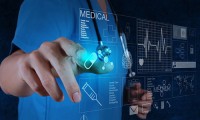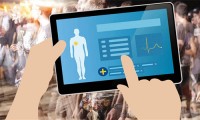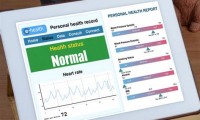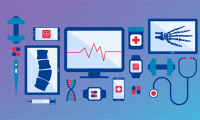-
Study shows wearables lack clinical impact, but researchers haven’t lost hope
- Source: FierceHealthcare
- 572
- January 18, 2018
-
FDA approves algorithm that predicts sudden patient deaths to help prevent them
- Source: Digital Trends
- 509
- January 16, 2018
-
How doctors and bots can work together
- Source: Venturebeat
- 540
- January 10, 2018
-
Illumina and KingMed to develop oncology diagnostics in China
- Source: Verdict Medical Devices
- 642
- January 9, 2018
-
Microsoft and Adaptive Biotech to create universal blood test using AI
- Source: Verdict Medical Devices
- 524
- January 8, 2018
-
High Performance Computing and Big Data in Medicine and Pathology
- Source: europa
- 658
- December 26, 2017
-
FDA clears Shire’s dosing software for haemophilia A SHARE
- Source: medicaldevice-network
- 605
- December 26, 2017
-
Health System CIOs Are Ready to Take mHealth to the Next Level
- Source: mhealthintelligence
- 674
- December 25, 2017
-
Clinicians still struggle to quickly access EHRs at point of care
- Source: healthcareitnews
- 474
- December 25, 2017
-
LSP closes $330M medtech fund, plots 15 investments
- Source: fiercebiotech
- 685
- December 14, 2017
your submission has already been received.
OK
Subscribe
Please enter a valid Email address!
Submit
The most relevant industry news & insight will be sent to you every two weeks.













